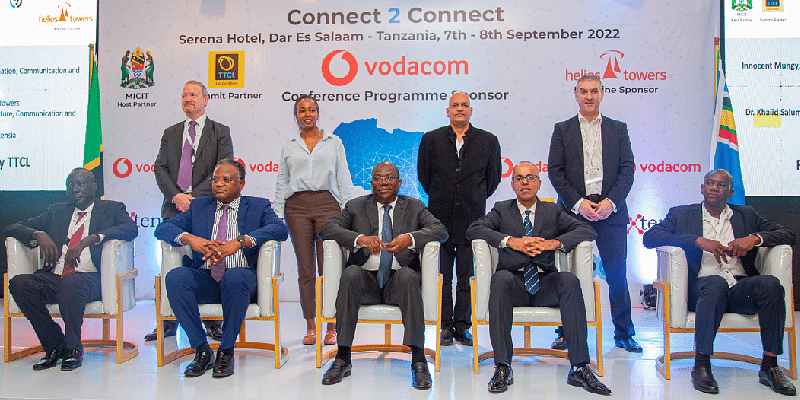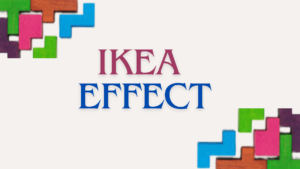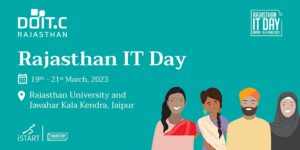Around 365 attendees from 28 countries and 150 companies gathered in Dar es Salaam for the 6th annual Connect-to-Connect (C2C) Summit.
Organised by Extensia, C2C 2022 in Tanzania featured 65 speakers addressing 20 sessions on a wide range of topics: operator strategies, ICT ecosystem security, infrastructure outsourcing, regional interconnectivity, high-throughput networks, rural networks, network diversity, regulatory frameworks, and national infrastructure strategies.
As conference chair, here are my key takeaways from this insightful event, in three clusters: infrastructure, innovation, and inclusion. See also my earlier conference insights from Extensia’s Innovation Africa Digital Summits (IADS) in 2022, 2021, 2019, 2018, 2017, 2016, 2015, and 2014, and the Youth Engagement Summit.
Infrastructure
ICT (information and communication technology) infrastructure should be scaleable, secure, and well-managed. ICTs are a core sector in their own right, and an enabler and driver of all other sectors, as emphasised by a range of speakers in the opening session.
They emphasised that last-mile connectivity should also lead to last-mile delivery of services. Connectivity is about more than access to networks—it should drive an increase in jobs, knowledge, skills, and incomes.
The speakers included Innocent Mungy, Head of Communications, Ministry of Information, Communication and Information Technology (MICIT); Tariq Malik, CEO, Extensia; Gwakisa Stadi, Managing Director, Helios Towers; Hilda Bujiku, Ag. Managing Director, Vodacom Tanzania; Dr Emmanuel C Manasseh, Director, Industry Affairs, TCRA; Jim Yonazi, Permanent Secretary, MICIT; and Hon. Nape Nnauye, Minister, MICIT, Tanzania.
The speakers emphasised the need to harness local talent and strengthen local skills to build digital infrastructure. There is also a lot of appetite and keenness for digital adoption in Africa, driven in particular by the youth population.
A panel of experts showed how the pandemic accelerated digital adoption and data traffic. This calls for networks with more capacity and more investment in broadband internet.
This panel featured Juanita Clark, CEO, Digital Council Africa; Alvin Thomas, Senior Sales Director, Intelsat; Naoll Merdassa, VP, Sr. Solution Architect, Bank of America; Alex Nkuyahaga, CTO, Smile Communications Tanzania; and Hannes Hattingh, Sales Director Africa, ST Engineering iDirect.
Data consumption in many parts of Africa has also gone through the roof, thanks to OTT. Heavy users of data tend to have multiple service providers. Network operators, therefore, need to plan for 5-10 years ahead to anticipate demands on throughput; it is not practical to do only incremental improvements each year.
Technology has opened up a sea of opportunity and removed the myth that everything happens only in cities. Rural Africa also has much to gain from the digital economy, as not just consumers of content but creators and enablers of e-business.
In this regard, network diversity with a range of hybrid integrated solutions is key, according to a panel featuring Juanita Clark, CEO, Digital Council Africa; Chidi Ajuzie, Chief Operating Officer, WTES Projects; James Wekesa, Chief Commercial Officer, WIOCC; Amit Pathak, Regional Manager, YahClick; and Emmanuel Luanda, HOD: Network Performance, Vodacom Tanzania.
Infrastructure outsourcing has become a prevalent and mature practice in the ICT industry. It enables efficiency and risk management for operators, and allows them to focus on their core competencies. But operators also need to keep an eye on brand and differentiation, as explained by a panel moderated by Mike Conradi, Partner, DLA Piper.
Insights on outsourcing agreements and outcomes were shared by Tom Greenwood, Group CEO, Helios Towers; Abel Kinyau, HoD: Network Operations, Vodacom Tanzania; Richard Vaillant, Regional MD, Camusat; Judy Nguru, SVP Strategic Development, Raxio Data Centre; and Steve Harris, CEO, Paradigm Infrastructure.
Consumer and business expectations of near-instant responses to online queries and transactions have elevated data centres to a core part of digital infrastructure strategy. Businesses are turning to data centres for reasons of risk management, customer experience delight, and data sovereignty regulations.
Data centre capabilities are now accessible to SMBs as well, and not just large firms, as explained by Wingu.Africa CEO Anthony Voscarides and Chief Strategy Officer Nicholas Lodge.
A variety of solutions is accessible in Africa for telecom and datacom access, as demonstrated in showcases featuring Intelsat, Lynk Global, Mobile Technologies, ABS, Infobip, NICTBB, and Thuraya.
Along with these opportunities, a range of challenges also arises, particularly with respect to cybersecurity. Consumer, business and government users of ICTs need to up their digital quotient when it comes to awareness and pro-active measures of safety and trust.
Tools to commit cybercrimes seem to be more easily available than those to track or prevent them, as discussed in a panel moderated by Yusuph Kileo, Cybersecurity and Digital Forensics Expert, AfICTA.
Expert speakers included Rachael Shitanda, Security Analyst, CyberShujaa, United States International University; Divyesh Panchal, MD and CEO, Sav Info Tech Africa Group; Mulembwa Munaku, Director of ICT, MICIT; and Peter Kaaya, HoD, ICT Department, Arusha Technical College.
Industry and academia need to work together on this front to improve the vigilance and resilience of the broader ecosystem. This includes cybersecurity curriculum, standards, and certification.
Innovation
In addition to digital infrastructure, innovation is needed on three fronts: policy mechanisms (eg. spectrum allocation), business models (eg. freemium, SaaS), and engagement with startup ecosystems (eg. incubators, accelerators).
“Spectrum innovation is key for the digital future,” according to Dr Emmanuel C Manasseh, Director, Industry Affairs, TCRA. Regulatory frameworks which were based on distinct domains now need to become more cross-sectoral and collaborative in the digital era.
‘Fit for purpose regulation’ holds the key to balancing sustainability and growth. ICT industry growth must be accompanied by innovative approaches to ensure broad-based access.
“Novel regulatory tools can unlock the power of new and emerging technologies,” Manasseh affirmed. He pointed to Tanzania’s regulatory approaches as exemplary in this regard.
He called for regulators and policymakers to adopt data-driven tools in decision-making for the deployment and sharing of digital infrastructure.
“Regulators and policymakers are the master builders of the digital transformation,” Manasseh emphasised. “Investment is one of the cornerstones of digital transformation,” he added, as a driver to attract more investors to African countries.
Out of 54 countries in Africa, 16 are landlocked, and innovative cooperation frameworks need to be scaled up so that countries with seashores can share submarine cable access with inland countries.
Collective innovation is also needed in three areas of sustainability—business, social, and environmental, in keeping with the UN Sustainable Development Goals (SDGs). Social enterprises, corporate social responsibility, and inclusive corporate business models are possible avenues in this regard.
The challenges of the pandemic have forced infrastructure providers to innovate their way out of the crisis while also harnessing the entrepreneurial drive of youth in Africa, which has the youngest demographic in the world.
A wide spectrum of connectivity options is available for rural Africa. This includes satellite, with solar and wind energy solutions on the ground, as explained by a panel moderated by Nazar Nicholas, VP, ISOC Tanzania.
Shared-access community centres can empower rural communities via a range of digital services. Multi-stakeholder collaboration has helped devise innovative ways to bring such affordable access to many remote regions of Africa, according to Bradley Shaw, VP – Middle East and Africa, Lynk Global; Prakhar Vashisht, Senior Manager, MEA, Hughes Network Systems; and Amani Keenja, Head of Projects, Helios Towers.
Engaging with startup ecosystems helps generate local jobs, increase intellectual property, empower entrepreneurs, and improve the innovation capabilities of government and corporate players. This can be part of the core business model of large firms, or a CSR initiative. Examples of such startup cohort engagement were shared by Vodacom.
Outcomes of such innovative public-private partnerships include reducing maternal and newborn deaths in Africa, according to Rosalynn Mworia, Corporate Affairs Director, Vodacom. Innovation in programme design can help scale such impacts.
The EU has a range of flagships, initiatives, and projects for digital infrastructure and soft skills in Africa. This includes a Digital Innovation Bridge and entrepreneurship support, as described by Jose-Luis Gonzalez, Project Officer, European Union for East Africa Digital Connectivity.
For example, the Digital4Tanzania (D4T) programme has been developed in consultation with key stakeholders, with a budget and timeframe of €35 million over four years. The focus is on digital government, inclusive digital onnectivity, and trade support via e-payments and entrepreneurship.
Tanzania is ramping up its internal connectivity and external interconnectivity, as affirmed by a highly interactive panel moderated by Innocent Mungy, Head of Communications, MICIT, Tanzania.
Government-industry cooperation and creativity were exemplified by the speakers: Mohammed Khamis Abdulla, Deputy Permanent Secretary, MICIT; Cecil Francis, CTO, TTCL; Denny Marandure, CEO, Liquid Intelligent Technologies; and Hoah Maina, Networks & Systems Infrastructure Professional, SEACOM.
Rather than antagonistic or adversarial positions, more alignment of agendas is emerging in the region—a fact appreciated by the audience, who called for further cooperation in international connectivity.
Inclusion
No African should be left behind—connectivity is a fundamental human right. This theme of inclusion came up in a range of panels and keynotes throughout the two-day event.
Three fronts for such inclusion initiatives were discussed—affordability (network access, devices), partnerships, and regulation/taxation.
For example, the Kigamboni Community Innovation Hub is a good example of broadband community WiFi for a range of local services (eg. education, e-government). This is a commendable achievement of TADIP (Tanzania Digital Inclusion Programme), as described by Nazar Kirama, VP, ISOC Tanzania.
Taxation policies should move away from short-termism. Otherwise, digitalisation may be crippled, inclusion may be reduced, and the economy may become moribund, as emphasised by a panel on operator strategies featuring Onica Makwakwa, Head of Africa, Alliance for Affordable Internet; Najib Ferej, Deputy CFO, Halotel; and Mike Serame, Executive Head – External Affairs, Vodacom South Africa.
There are gaps—and opportunities—in solving rural connectivity in Sub-Saharan Africa, as shown by Benson Kyambile, Director of Wireless & Core Networks Solutions Sales, Huawei. Innovation and inclusion are important considerations for the ICT industry, affirmed Dalili Musa, Director of Technical Centre, Halotel.
Several experts also called for better metrics to assess ICT impacts at the level of not just business and industry, but GDP and SDGs. ICTs bring great opportunity, but also call for greater responsibility for inclusion. Inter-ministerial and international dialogue help sharing and scaling of best practices for prosperity and inclusion.
The road ahead
The C2C Summit also featured some sessions on future trends in technology, and opportunities and pathways for Africa.
“The next evolution of the internet will be the metaverse,” said Fargani Tambeayuk, Head of Connectivity Policy, Africa, at Meta. He presented a range of use cases of VR and AR in surgery training, logistics, and energy, with impacts like safety and efficiency via immersive environments.
ICTs are also creating a new language and culture. For example, a new word many conference attendees heard for the first time was metathon—a hackathon for creating metaverse content and applications. Other popular terms used were moving beyond ‘short-termism’ towards long-term perspectives, and ‘fit-to-purpose’ progressive regulation and taxation.
The concluding panel, with regulatory experts from East, West and Southern Africa, exemplified the spirit of the C2C Summit to find and build collaborative solutions. Moderated by Adrian Hall, COO, Extensia, it featured insights and experiences from Dr Emmanuel C. Manasseh, Director, Industry Affairs, TCRA; Dr. Bashir Gwandu, Commonwealth ITU Group (CIG); and Francisco Chate, ICT Policy & Regulatory Advisor, INCM.
Several best practices were shared, along with information about downloadable resources. Expertise in spectrum licensing and sharing can help dramatically increase the performance and reach of ICTs in Africa.
Together, government and industry leaders can take the ICT industry forward, improve connectivity, and enhance livelihoods, as affirmed in the final session with Innocent Mungy, Head of Communications, MICIT; Gwakisa Stadi, Managing Director, Helios Towers; and Dr Khalid Salum Mohammed, Minister, Ministry of Infrastructure, Communication and Transport, Zanzibar.
The new value economy reflects how prosperity and sustainability can be embedded in the way value is created, delivered, experienced, and captured in the ICT ecosystem. The ICT industry is fortunate to be in such a dynamic and influential space, and so much responsibility rests on the shoulders of this community.
Speakers from Tanzania and elsewhere affirmed the significance of the country as a peaceful and progressive hub, with natural diversity and cultural diversity. Two cultural performances by Wabantu and Hurricane also brought out this diversity in an entertaining manner.
The hosts of the Summit expressed commitment to bring the next C2C Summit to Zanzibar in 2023. In the year to come, the C2C community can look forward to more strengthening of conversations and capacity to strengthen Africa’s ICT sector!
(Images credit – Extensia)










